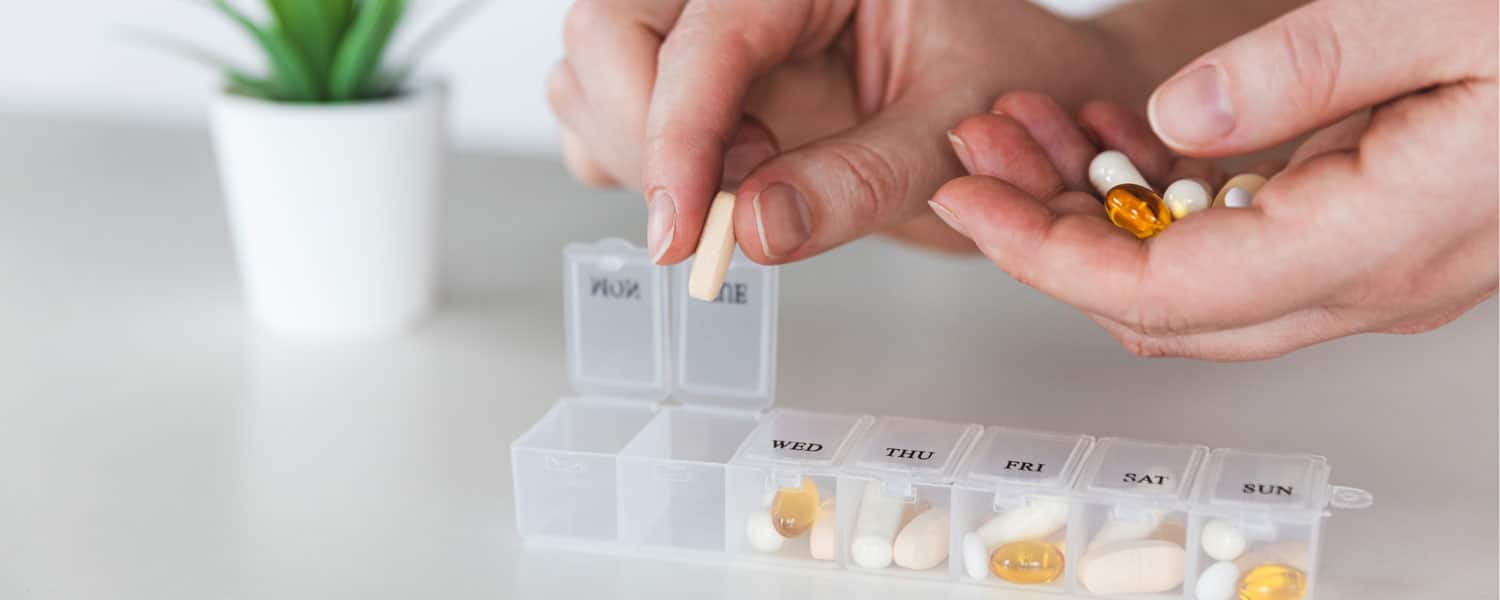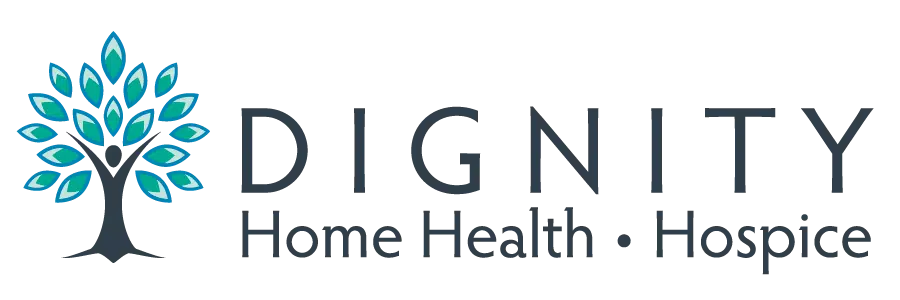Improving Your Loved One's Quality of Life with Pain Management
The main goal of home health or hospice pain and symptom management is to improve the patient's quality of life. Pain management, when performed correctly, can also enhance a patient's mental and physical functions. Without palliative care for chronic pain, patients are limited in what they can do; it can even prevent them from talking or enjoying the company of others. If more severe, it can affect their mood and ability to think, make important decisions, and even sleep. Pain left untreated can even exacerbate health issues such as stress, heart rate, and blood pressure, while negatively affecting the healing process.
Pain and symptom management services ease the suffering of your loved one, allowing them to live a more fulfilling life. Under the care of your skilled nurse from Dignity, you can rest assured that your loved one is as comfortable as possible.

How Hospice Pain Management Differs from Home Health Pain Management
Hospice care and home health care are services that have different treatments and goals. In both situations, pain management is a service that can be applied depending on the patient's needs and situation. Overall, the goal is the same: to keep the patient comfortable. However, home hospice and home health have different goals and applications for pain management.

Pain Management in Hospice Care
Hospice care is a set of services reserved for patients with a terminal illness who can no longer have curative treatment, or no longer wish to. When palliative care is offered to hospice patients, it is done so an end-of-life pain management strategy. The goal is to keep the patient comfortable and improve their quality of life so they can peacefully live their final days, weeks, or months of life. In order to meet the patient's needs, a variety of pain management services, such as medication, are used to ease the patient's suffering.

Pain Management in Home Health
Home health services provide convenient medical assistance to a patient experiencing an illness or recovering from an injury. Unlike hospice, home health services aim to treat the illness or injury, allowing the patient to recover. Care in the comfort of familiar surroundings helps the patient regain independence, heal, increase self-sufficiency, maintain functionality, and ease discomfort. Pain is often unavoidable during the recovery process from an injury or illness. The goal of pain management in home health is to keep the patient comfortable during the healing process, so the patient can get back to living life as usual. Ideally, pain medication dosage will taper off during the course of home health services.

Our Home Health and Hospice Pain Management Services
At Dignity Home Health and Hospice, we offer pain management services to keep patients comfortable and improve their quality of life. We accomplish this service by conducting regular pain assessments with a physician. RNs, certified nurse's aides, and family members are all involved in this process and work together. At Dignity Home Health and Hospice, we keep you informed and involved every step of the way.
Pain Medication Coordination
Medication is usually the primary treatment method for pain and offers a high level of relief. The physician may prescribe different types throughout the treatment to determine what works best for the patient. Common pain medications that are used are anti-inflammatory drugs like ibuprofen and acetaminophen. Depending on the pain's severity and the patient's goal, other pain medications, including lorazepam, morphine, and other opioids, can be used. Medications can be administered in the following ways:
- Orally
- With injection
- Intravenously, also known as an IV
- Medicine pump attached to the body
Complimentary Supplements and Medications
We use a variety of pain supplements and medications in conjunction with pain medications. Many times, the combination makes an effective treatment to keep the discomfort under control. Here are some complimentary supplements and medications that we commonly use:

Over-the-Counter Supplements
Some supplements, such as magnesium, can be used supplementary to pain medication as a smooth muscle relaxant and anti-inflammatory. It often helps patients find effective relief when combined with a lower dose of pain medication.

Sleep Assistance
Patients experiencing interrupted sleep from pain or worry are more likely to have higher rates of pain the next day. Sleep medication, supplementation, over-the-counter medicines, exercise, and baths are all elements we can incorporate to help the patient reduce pain.

Oxygen
Oxygen is often used in addition to pain medication to encourage healing throughout the body. It also reduces shortness of breath and lessens the sensation of not being able to get enough air. Patients with supplementary oxygen often feel less tired, sleep better, and are often able to be more active.

Physical Therapy
Patients who suffer from chronic pain often find that physical therapy helps to ease their discomfort and help them feel better. Physical therapists locate and treat areas of pain and stiffness with gentle exercise movements. As the painful areas are treated, the discomfort will disappear. It's beneficial for those who have experienced an injury and need help getting back to independence. Other medical conditions that might benefit from home physical therapy include:
- Multiple sclerosis
- Parkinson's disease
- Post-surgical conditions such as joint replacements
- Amyotrophic lateral sclerosis (also known as ALS)
- A post-traumatic event such as a heart attack or fracture
- Stroke recovery
When appropriate for the patient, physical therapy is a valuable tool to help improve quality of life, mobility, and independence.
Pain & Symptom Mangement Cost and Medicare Coverage
There can be many questions that arise during the process of setting up home health and hospice services for a loved one. Perhaps the biggest concern is how to pay and if Medicare covers any services. When included as part of the overall service of hospice care, pain management services are covered 100% by Medicare, Med Advantage Plans, Medicaid, and many private insurance plans. Medicare coverage for pain management services used for home health services can vary. To see if you or a loved one qualifies, give us a call or contact us today.


